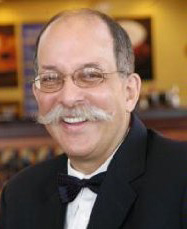
Message from the Chairman
by Steven Ferry
Robot butlers that are already in use in hotels to deliver toothpaste and cups of coffee, are being touted as “the future of room service” once their carrying capacity is increased. Hmmm…. The people who say this kind of thing are predictably people-challenged—they have difficulty relating to others and observing and appreciating their uniqueness, the life in them. So just because these robot gurus/wonks say something does not
a) make it true, nor
b) desirable outside of their own people-challenged point of view.
We would make a mistake considering them to be as we are, and falling in line with their goals. The goal of technology seems to be “no people,” if you examine the trends very carefully.
Personally, if I order room service, I appreciate having a real person deliver it—even if their service is poor or they are money motivated, or whatever worst-case scenario could exist. Why? Basically because life likes life!
In the US, the Institute has an office in a big city, and one high in the mountains where there are only 3,000 people in an area that is 17x the size of New York City (with its 8.55 million inhabitants).
When FedEx or UPS deliver something to us in the city, they drop it at the door, sometimes ring the doorbell in case you are in, and drive off (the new kid on the delivery block, Amazon, simply throws packages at the door as they drive past! And they are an abject lesson in what happens when robots and automation dominate an industry (shopping).
When FedEx or UPS deliver to us in the mountains, they stop, we chat for ten minutes, offer them a drink, the use of the conveniences, and look forward to their next visit.
When people become too great in number, they become invisible and lack value—same as any commodity that is too common or too scarce.
When people are scarce, they are valued. But you assign whatever value you want to anything. Look how valuable that Volleyball was to Tom Hanks in the movie Castaway—Wilson (the brand of the ball) was the only social company he had.
But you don’t have to live in the mountains, where people are scarce, to appreciate them, not if you make them the one and only person you are talking to, when you talk to them!

